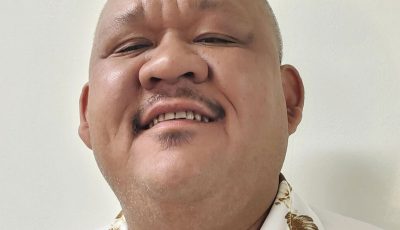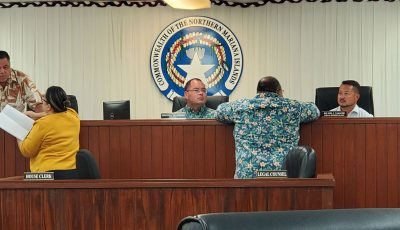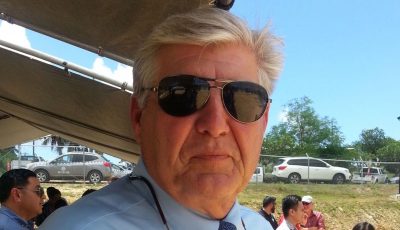House leaders support Kilili’s Insular Area Medicaid Parity Act
The leadership of the CNMI House of Representatives has thrown its support for the Insular Area Medicaid Parity Act that Delegate Gregorio Kilili Camacho Sablan (Ind-MP) introduced.
The letter of support, dated March 16, was submitted to U.S. House Committee on Energy and Commerce chair Rep. Frank Pallone, U.S. House Committee on Energy and Commerce Subcommittee on Health chair Rep. Anna Eschoo, and two other ranking members of the Committee.
The letter was signed by House Speaker Edmund S. Villagomez (Ind-Saipan), vice speaker Rep. Blas Jonathan T. Attao (R-Saipan), floor leader Rep. Ralph N. Yumul (R-Saipan), Committee on Health and Welfare chair Rep. Christina E. Sablan (D-Saipan), Committee on Ways and Means chair Rep. Donald M. Manglona (Ind-Rota), and Committee on Federal and Foreign Affairs chair Rep. Vicente Camacho (D-Saipan).
The U.S. House Committee on Energy and Commerce Committee, Health Subcommittee had a hearing last week about delegate Sablan’s legislation.
The CNMI House leaders said in the letter that CNMI citizens and millions of fellow Americans residing in U.S. insular areas have long faced chronic underfunding of Medicaid and that an impending Medicaid “fiscal cliff” jeopardizes access to critically needed health care.
They said delegate Sablan H.R. 265 corrects that serious inequity by lifting the cap on general Medicaid funding to the territories that is set forth in the Social Security Act.
They said the major disparity between Medicaid in the territories and Medicaid in the United States is in the financial treatment, as highlighted in recent reports to U.S. Congress by the Medicaid and CHIP Payment and Access Commission.
The leaders said that, unlike the states, statutory annual ceilings apply to Medicaid funding in the territories regardless of changes in enrollment or services.
They said caps of Section 1108 of the Social Security Act have resulted in historically insufficient resources to meet the health care needs of Medicaid eligible citizens.
The leaders said another statutory inequity lies in the Federal Medical Assistance Percentage, or the matching rate, which for the territories is fixed at 55% federal to 45% non-federal share for most Medicaid expenses.
They said in addition to supporting removal of the Section 118 caps, they recommend that Congress apply to the territories the same FMAP formula that is used for the United States and that takes into account the relative income and poverty levels of the jurisdictions.
“Eliminating the Section 1108 caps and applying an equitable method of determining the FMAP will enable the Medicaid programs in the Northern Marianas and the other territories to provide the same level of care that Medicaid eligible citizens receive in the [United] States, ensure that health care providers are reimbursed appropriately for the services delivered, and allow the Territories to plan and manage the Medicaid programs as the states do,” they said.



























